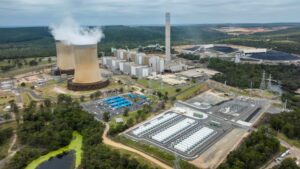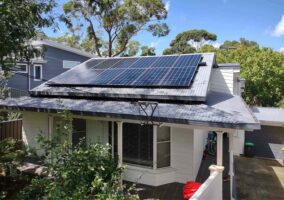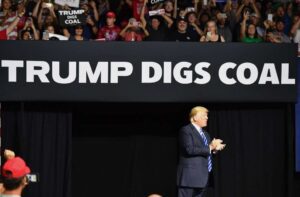The Clean Energy Finance Corporation (CEFC), Australia’s government-owned green bank, has announced it will invest up to $80 million into an ambitious private equity fund designed to drive down the emissions of middle market companies.
The fund, managed by healthcare-focused Sydney private equity firm Crescent Capital Partners, will invest in a range of sectors but is anticipated to focus significantly on companies in the healthcare sector – a field that makes up an estimated 4.4% of global emissions but has been notoriously slow to decarbonise.
The fund has raised $1billion which it will invest into companies with an enterprise value of between $100 million and $500 million.
According to the CEFC, its investment is contingent on measurable emissions reductions across the fund.
Crescent will set decarbonisation pathways exceeding the requirements of the Paris Agreement for each acquired company, and will aim to achieve net zero Scope 1 and 2 emissions within ten years of acquisition. The company will also target Scope 3 emissions by mapping out the supply chain of each asset.
Rory Lonergan, CEFC’s Chief Investment Officer, Infrastructure and Alternatives, said that achieving net zero by 2050 would require every sector to take drastic action, including private equity.
“We see the very substantial $42 billion private equity sector as having a key role to play here, in influencing the assets it acquires, the way they are managed and in capturing value at exit,” he said.
“As asset owners, forward-looking investors such as Crescent can make a material change across broad portfolios, setting new standards for abatement at the company level while lifting investor confidence via enhanced transparency and disclosure.
“We’re particularly pleased to work with Crescent in bringing the advantages of decarbonisation to Australia’s essential middle market corporates. Today, these companies account for a significant portion of our economy, as well as our total emissions.
“By investing in decarbonisation now, we can be confident they will continue to play a significant role in our economy in the future, with sustainability embedded in their operations, delivering lower emissions alongside enduring investor support.”
Crescent Capital’s head of ESG Lucy Cooper said it is the company’s seventh fund, and comes at a “pivotal time” for decarbonising mid-market Australian companies, given the need to achieve meaningful emissions reductions by 2030.
According to the Responsible Investment Association Australasia (RIAA), consumer demand for ‘responsible’ investment is growing, from $1.28 trillion in 2020 to $1.54 trillion in 2022.
According to the results of an RIAA survey, 72% of Australians believe the finance sector can positively influence climate change through their investment decisions.
Not everyone agrees. In 2021 Tariq Fancy, formerly an ESG executive at BlackRock, the world’s largest asset manager, told The Guardian that he held little hope of finance fuelling decarbonisation, pointing out that whenever more environmentally conscious investors pull away from a profitable but damaging asset, there will likely always be another less scrupulous investor ready to fill the gap.
That view is borne out by the very architecture of divestment (when companies sell their investments in fossil fuel and other environmentally damaging companies), since the shares, already issued, are merely sold to someone else.
According to one report, published a decade ago by the University of Oxford, “even if the maximum possible capital was divested from fossil fuel companies, their share prices are unlikely to suffer precipitous decline”.
On the other hand, the CEFC’s latest investment represents a far more involved method of green investing than simple divestment, since it mandates structural change within the companies themselves.
And there are rumblings of more intense legislation around ESG investing in Australia: in 2022, Federal Minister for Financial Services Stephen Jones flagged that he would investigate legislating ESG definitions in 2023. In the EU, such legislation is already in place, with ESG investment products subject to disclosure requirements under the Sustainable Finance Disclosure Regulation.







